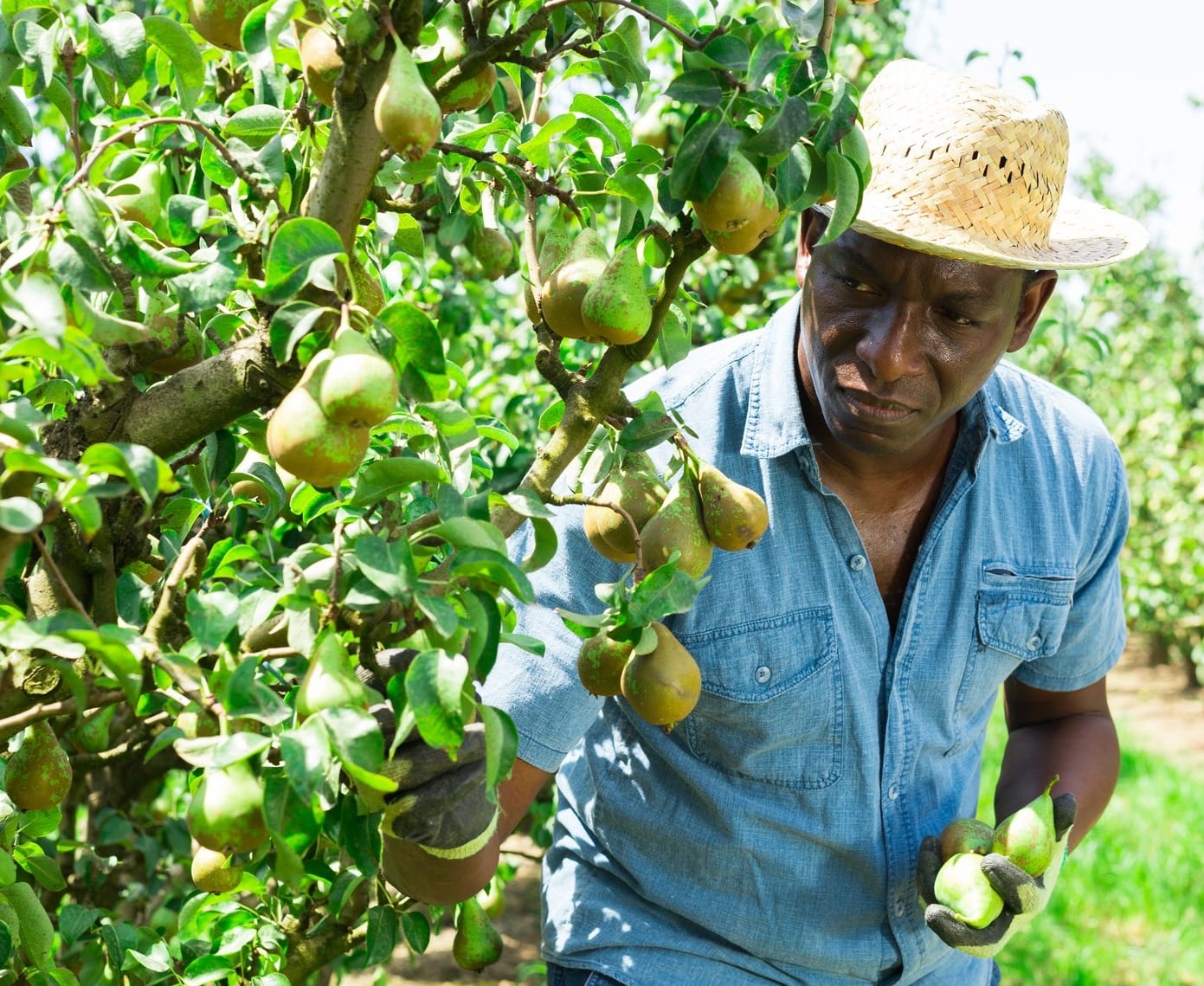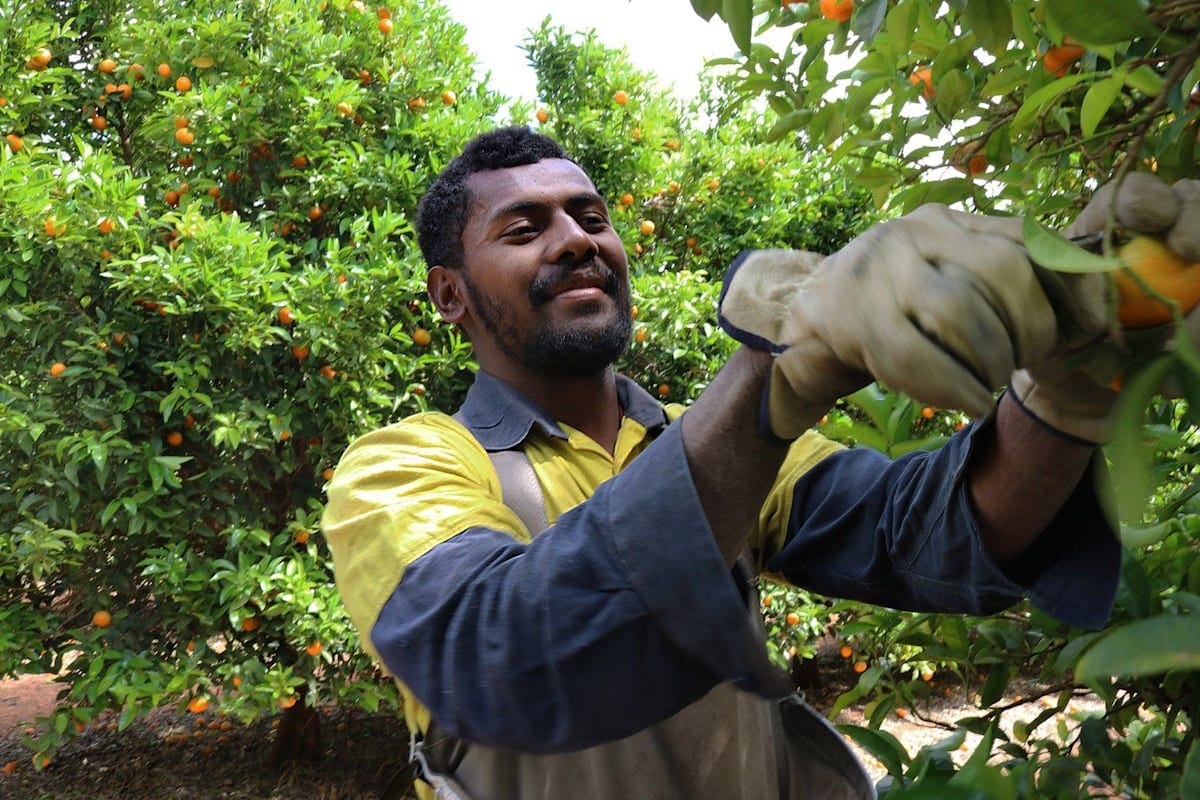
At first glance, the Pacific Australia Labour Mobility (PALM) scheme seems like a good idea. Australian businesses in rural and regional locations get to address labour shortages by hiring Pacific Island workers to perform manual labour. These workers can be hired on a short-term basis (up to nine months) or long-term (one to four years).
On face value, it’s a win-win – Australia solves its labour shortages, and our near neighbours get the economic benefits that flow from skill development, as well as the money they send home to support their families and communities.
However, the authors’ recent travels to Fiji, Samoa and Vanuatu revealed the PALM scheme has some problematic elements, and there are mixed feelings about it within Pacific Island countries.
On the one hand, participants in PALM are able to send money home to their families (commonly referred to as remittances), which makes a significant and welcome contribution to a family’s income, providing crucial safeguards against the growing economic impacts of climate change in the region.
In 2022, Samoa ranked second in the world for the percentage that remittances contributed to GDP (33.61%). In Fiji, remittances over the past 10 years averaged A$295 million, with more than 60% of the funds originating from Australia, New Zealand and the United States.
Given that a sizeable amount of remittances also comes through mobile money platforms and informal channels, the actual inflows could be much higher.
The money being sent home by participants in PALM, and the Recognised Seasonal Employer Scheme in New Zealand (RSE), comes at a hefty price.
The small Pacific Island nations are experiencing a severe brain drain. Samoa’s Prime Minister, Fiame Naomi Mata'afa, has noted that:
“The original idea was that the recruitment would be from the unemployed sector.”
But it’s become clear that the public sector, private sector, manufacturing and tourism industries are all losing people to the seasonal worker schemes.
This wouldn’t be such a problem if participants in PALM received training that saw them return home at the end of the program with skills that can be usefully employed in their home country, but this isn’t the reality.

Pacific Island employees are often used for menial labour rather than skill development. For example, Pacific Building Solutions, a construction company based in Suva, Fiji has lost 20% of its workforce to PALM, but rather than increasing their building skills, these Fijians are working in agriculture or abattoirs, meaning they’re not returning home to more highly skilled jobs.
Meanwhile, Pacific Island nations are desperately trying to fill the labour shortages that are the direct result of young people leaving to take up work opportunities in Australia and New Zealand.
In Vanuatu, where most sectors are experiencing extreme labour scarcities, an emergency employment visa was introduced to bring in up to 1500 workers from overseas, many of whom come from the Philippines.
Similarly, Fiji is bringing in an increasing number of Bangladeshis to work in the construction sector and in harvesting sugarcane.
Just like Fijians in Australia, these Bangladeshi workers send remittances back home to their families. One can only wonder how long it will be before Bangladesh has to recruit workers from another country in response to the outflow of their young men to Fiji and other Pacific Island nations.
Pacific countries are acutely aware of these tensions and are pushing back.
Samoa's Prime Minister Fiame Naomi Mata'afa has doubled down on her concerns about Australia's labour mobility scheme creating problems for the local workforce. https://t.co/LPMcVW2pjz— RNZ Pacific (@RNZPacific) August 31, 2023
Samoa placed a temporary ban on labour mobility, and has since capped numbers on both the PALM and RSE programs.
In Vanuatu, to curb the effects of family separation and to maintain connection to community and culture, some village leaders have put in place limits on the number of men who are permitted to participate in the scheme at any one time, and the frequency of their trips.
Vanuatu is witnessing interesting and unanticipated changes in gender and social norms as a result of the departure of so many young men to Australia and New Zealand.
Women are having to step into roles that have traditionally been performed by males, which is leading to unanticipated changes in gender equality and women’s economic empowerment.
Looking at PALM through a purely economic lens misrepresents the full impact of the program. Participants can feel forced to choose between living with their families or earning a decent income.
International human rights law provides that:
“The widest possible protection and assistance should be accorded to the family, which is the natural and fundamental group unit of society.”
It’s highly problematic to have workers’ choices shaped by physical separation from members of their households. It’s time for PALM to be reviewed using a rights-based approach that considers not just the economic impact of the program, but also the human right to family and community.
Samoa is showing leadership in the region on this matter, and is reviewing its regulations regarding travel to Australia for work (as are Vanuatu and Tonga).
They are also pushing the Australian and New Zealand governments for better arrangements, including more flexibility regarding visas, increased pay rates, access to entitlements, and skills development opportunities.
As Australia seeks to press reset on its relationship with Pacific neighbours, centring the voice, rights, needs and priorities of Pacific countries regarding the PALM scheme will be crucial to maintaining stability and mutual respect in the region.





